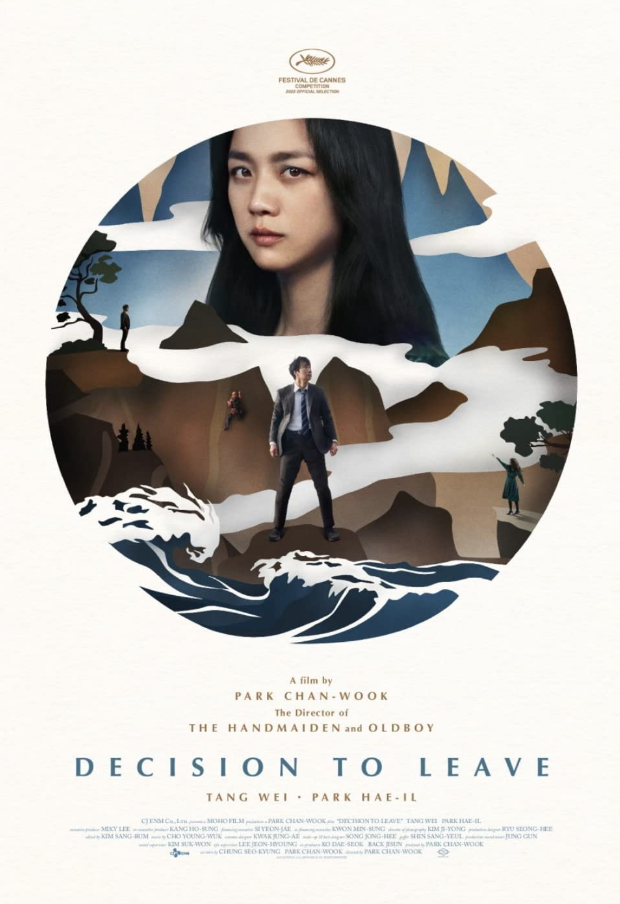Rating: 2.5/5 stars
This review contains spoilers for the film.
“Decision to Leave” is a deep film with layers and symbolism to unpack, but suffers from ridiculously over-the-top editing and cold, unsympathetic characters with little chemistry.
The film concerns a lonely and unhappy police detective, Hae-jun, who struggles to keep his work and personal life separate in the case of Seo Rae, a pretty and enigmatic murder suspect in the killing of her husband. Initially, he uncomfortably inserts himself into her life by watching and meeting with her under the guise of investigation, which she uses to her advantage. After the case is falsely closed to protect his romantic interest, the story changes gears and veers into wild and unpredictable directions. After orchestrating the killing of her next husband and having revealed to have killed her own mother previously, Seo Rae makes the titular “decision to leave” by drowning herself in a hole of sand at the beach while the hapless detective searches for her. This typical noir-like story is presented in a very unorthodox way.
“Decision to Leave” has some of the most jarring, confusing editing in modern cinema, but it all feels very intentional. Scenes from different timelines are shown completely out of context, along with visual insights into characters’ thoughts and frequent transitions that try too hard to be unique. The audience follows them throughout scenarios in their lives, from the mundane to the insane, and the quick, tightly-packed scenes make the 2 hour and 18 minute runtime feel much longer than it is.
Further adding to the confusion and lost-in-translation element is the fact that Seo Rae regularly speaks Chinese, and uses Korean Google Translate a number of times. Meaningful poetry and songs are also frequently spoken which gives subtitle readers an even harder time. It’s a needlessly confusing movie that requires multiple viewings, but just isn’t good enough to justify watching more than once. If they wanted to keep the characters so ambiguous and unsympathetic, “Decision to Leave” should have leaned into the absurd craziness of the second half earlier on.
Fortunately, the highs of this film almost make up for the lows. Directed by Park Chan-Wook, who won Best Director at Cannes Film Festival for “Decision to Leave,” usually makes films that contain surrealistic violence and sexuality with unpredictable plots. “Decision to Leave” is a deconstruction of the genres and filmography it roots itself in, as the leads never have sex but instead are intimate through cooking together and the detective being tucked into bed and put to sleep, and the violence that is commonplace in the police thriller genre mostly happens off-screen. (Also, why does every movie with Korean police always have casual police brutality during interrogations?)
In spite of the slower pace, confusion and strange and unidentifiable characters, there’s something about this film that kept me invested and wanting to see what happened next. It’s a unique and difficult film that would likely leave fans of Parasite and Squid Games unsatisfied.
“Decision to Leave” releases theatrically on Oct.14.










